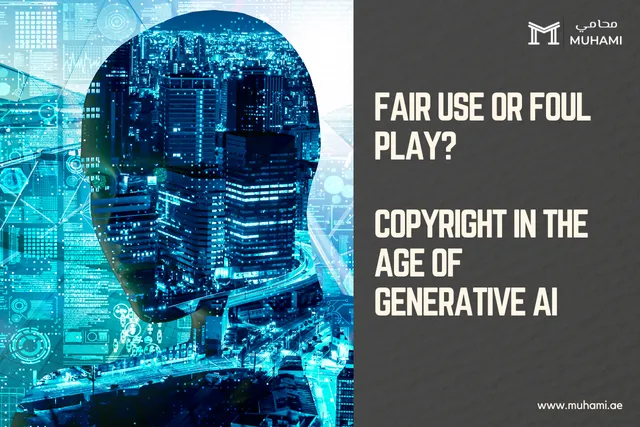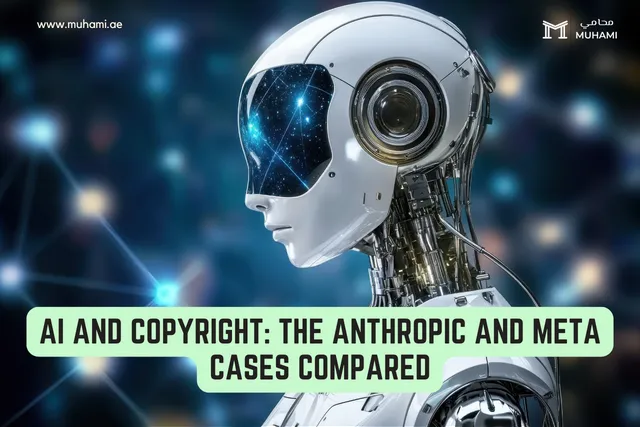Fair Use or Foul Play? Copyright in the Age of Generative AI

On July 23, 2025, Strike 3 Holdings filed a complaint against Meta in a California federal court, claiming up to $359 million in statutory damages.
The adult film production company alleges that Meta systematically pirated more than 2,300 copyrighted adult films through BitTorrent networks and actively shared this copyrighted content to accelerate the gathering of training data for its generative AI models.
As AI models train on vast datasets containing copyrighted works, creators are pushing back through the courts, challenging everything from artistic training data to news articles used without permission.
This wave of litigation is testing the boundaries of fair use and forcing courts to grapple with questions that will define the relationship between AI innovation and creator rights for years to come.
Ronin Legal explores the key cases shaping this legal battleground.
CURRENT LEGAL FRAMEWORK
Courts are seeing three typical outcomes in AI copyright disputes: victories for creators, wins for AI companies, or negotiated settlements. The central tension revolves around whether AI training on copyrighted material constitutes fair use and what evidence is needed to demonstrate actual harm to copyright holders.
A recurring theme involves violations of the Digital Millennium Copyright Act's Section 1202(b), where creators claim AI developers removed or altered attribution information during training. This strips away the original source credits that creators rely on for recognition and licensing opportunities.
RECENT DECISIONS
Sarah Anderson et al. v. Stability AI et al.
Artists sued Stability AI, Midjourney, and DeviantArt, claiming Stability AI's Stable Diffusion software scraped billions of copyrighted images without consent. Judge William Orrick dismissed the initial claims for insufficient specificity.
The amended complaint expanded the artist group and added Runway AI as a defendant. The court found two theories legally plausible: that the AI model itself contains infringing transformations of copyrighted works (the "model theory") and that distributing the AI tool equals distributing copyrighted content (the "distribution theory").
Unjust enrichment claims were dismissed, but plaintiffs can amend. DeviantArt defeated the contract claims. Kadrey v. Meta
Meta won when the court ruled that using copyrighted works to train its LLaMA model qualified as fair use. The decision emphasised the transformative nature of AI training and that plaintiffs failed to show market harm. The case became a pivotal moment in AI and copyright jurisprudence. Bartz v. Anthropic
Judge William Alsup granted summary judgment in favour of Anthropic, ruling that using copyrighted works for LLM training qualifies as a "quintessentially transformative" fair use. The court emphasised that the allegations were limited to input (training data) copying, with no claims of infringing output to users.
The ruling recognised the use of copyrighted material in creating AI models as transformative due to their new purpose and character and therefore considered it non-infringing. Daily News v. Microsoft
News publishers sued Microsoft and OpenAI over training AI models on reporters' work without permission. They claim the models reproduce copyrighted content verbatim and sometimes generate false information that harms news organizations' reputations.
The court rejected OpenAI's argument that plaintiffs lacked evidence of people using AI instead of paying for news. Most dismissal motions were denied and the case heads to trial. Perry v. Shein
Independent designers sued Shein for creating exact replicas of their copyrighted designs without authorization.
The lawsuit includes RICO Act claims, alleging coordinated copyright infringement and deceptive practices. A federal judge in California denied Shein's motion to dismiss the RICO claims. Some other claims were dismissed with leave to amend.
PENDING LITIGATION Authors Guild v. OpenAI
The Authors Guild and fiction writers sued OpenAI and Microsoft over unauthorized use of copyrighted books to train AI models. They claim this threatens writers' livelihoods while allowing defendants to avoid licensing fees.
OpenAI argues fair use, claiming its use of the works is transformative. A decision is expected early 2025, likely consolidated with Centre for Investigative Reporting v. OpenAI. Leovy v. Google
Google faces similar allegations over its training of Gemini (formerly Bard) and Imagen AI models using copyrighted text, images, and creative content scraped from across the internet.
ADDITIONAL CASE UPDATES Concord Music Group Inc. v. Anthropic saw the court require safeguards against infringing outputs, while Getty Images v. Stability AI continues with focus on copyright and trademark infringement after the UK Court of Appeal ruled on procedural matters.
LEGAL IMPLICATIONS
Courts are addressing fundamental questions that will shape both the tech and creative industries. These decisions will establish precedents for fair use in AI training, evidence requirements for proving harm, and the scope of protection for different types of creative works. The decisions ahead will
determine whether AI development can continue with current training practices or whether new licensing frameworks and legal boundaries will emerge.
Any Questions?
Connect with lawyers and seek expert legal advice
Share
Find by Article Category
Browse articles by categories
Related Articles

From Trade Routes to Control Lists: How…
When we think of the UAE, we often picture glittering skylines, bustling free z…

From Trade Routes to Control Lists: How the UAE M…
When we think of the UAE, we often picture glitte…

Property Ownership and Inheritance in D…
Buying property in Dubai is more than a transaction; it’s a long-term com…

Property Ownership and Inheritance in Dubai: Prot…
Buying property in Dubai is more than a transacti…

AI and Copyright: The Anthropic and Met…
In August 2024, authors Andrea Bartz, Charles Graeber, and Kirk Wallace Johnson…

AI and Copyright: The Anthropic and Meta Cases Co…
In August 2024, authors Andrea Bartz, Charles Gra…
